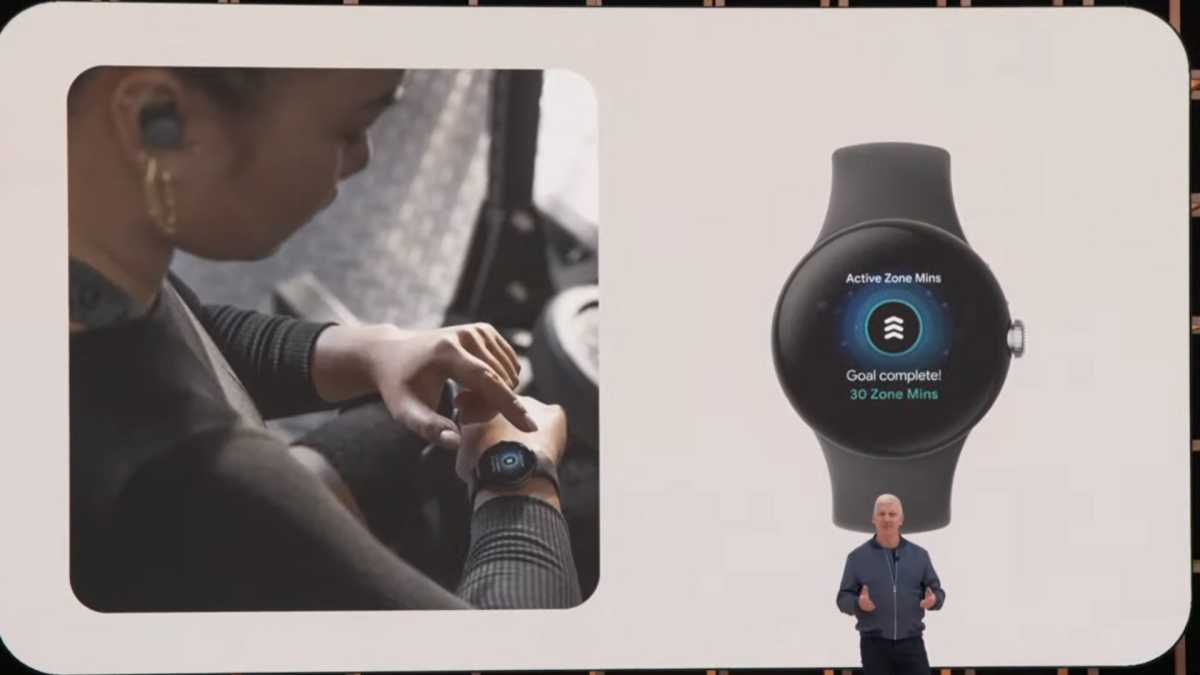Android fans have been waiting an entire year to see more options for the new and improved Wear OS 3 watches, since the only one that came out last year was Samsung’s exclusive Galaxy Watch4. At Google I/O 2022, the company announced the much-anticipated (and much-leaked) Pixel Watch, technically Google’s first smartwatch developed entirely in-house. And thanks to the company’s acquisition of Fitbit last year, it’s also going to be the first major update of Fitbit hardware since the original Fitbit Versa.
Details on the Pixel Watch are still scarce, as it’s planned to launch in the fall next to a new generation of Pixel phones. But we know it uses a big, circular, all-glass face, proprietary wrist bands, and “deep integration” with Fitbit’s fitness tracking systems. That’s a huge draw for Fitbit users, many of whom have been tracking their workouts, sleep patterns, and other essential health info for years and years. With the latest revisions of Fitbit hardware being iterative rather than transformative, the Pixel Watch will essentially become the new flagship Fitbit device. It also looks to be the most advanced (and almost certainly most expensive) way to access the Fitbit ecosystem.
Exactly how the Pixel Watch will improve on the current high-end Fitbit devices like the Versa 3 and Sense remains to be seen. Even as a Google subsidiary, Fitbit has been adding high-end tracking capability, like irregular heart rhythm notifications enabled just a few days ago. Google has said that the Pixel Watch will use Fitbit’s industry-leading fitness info system, highlighting continuous heart rate and sleep tracking, Fitbit’s Active Zone minutes scheme, and data syncing to the existing Fitbit tracking system. Previous leaks indicate that the Pixel Watch has a sensor setup very similar to the most recent Fitbit devices like the Charge 5.

As it’s based on Wear OS instead of Fitbit’s home-built software, the Pixel Watch will lean on more Google services. It’ll replace Fitbit’s proprietary NFC payment system with Google Wallet, and the Google Assistant integration will also be able to directly tie into Google Home hardware. But notably, Google made no mention of the existing Google Fit app, its own home-developed fitness tracker that’s been an integral part of Wear OS for years. It looks like Fitbit will essentially completely supplant Google Fit (at least by default) on the Pixel Watch. Whether that will extend to other watches that will finally get access to Wear OS 3 has yet to be seen.
We also don’t know how much the Pixel Watch will cost when it launches in the fall. As a direct competitor to the Apple Watch and Galaxy Watch—as opposed to more focused and limited fitness tracker-style devices Fitbit users are more familiar with—it might come with a high degree of sticker shock.



